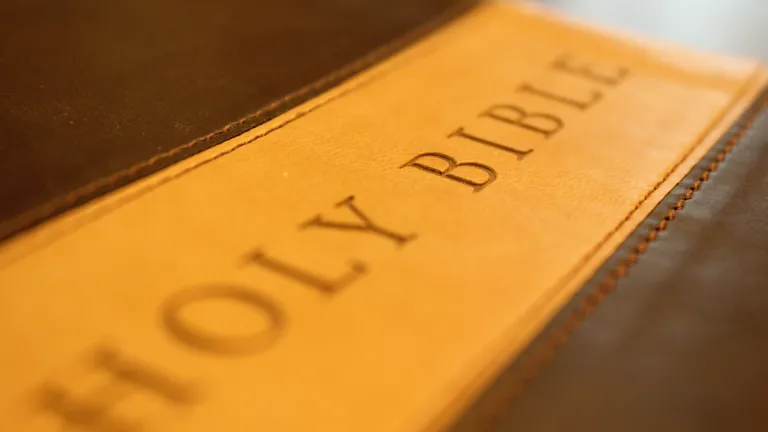Deuteronomy 15
Year of release, the poor, freeing slaves, firstborn animals
Statutes of Liberty
The New King James Version does not provide the best translation of verse 4, as it could be read to say that the law regarding the year of release would sometimes not be in effect because of periods when no one was poor. Perhaps it should read, "...that there be no poor among you," meaning this law would help prevent extreme poverty by preventing debts being exacted from those unable to fully repay them. The Living Bible translates the verse as, "No one will become poor because of this"—indicating that the year of release would not impoverish lenders. And the Revised Standard Version renders verses 4-5 this way: "But there will be no poor among you...if only you will obey the voice of the Lord your God...."
Although there should have been no poverty within the nation of Israel, since God promised to bless everyone among His people (Deuteronomy 15:4)—which will be the case throughout the whole world during the future millennial reign of Christ (Micah 4:4)—God's promise to the Israelites was conditional upon their obedience (Deuteronomy 15:5). And since He knew the kind of people they would be (compare Deuteronomy 5:29), He also knew that there would be poverty (Deuteronomy 15:11; compare Matthew 26:11). Therefore, He devised a system to deal with the poor in a merciful and compassionate way unlike any social system known in this world today.
At the end of every seven years, a total release of all debts had to be granted (Deuteronomy 15:1). If there is any modern parallel at all, it is that of declaring bankruptcy—except that, in ancient Israel, the seven-year release was mandatory, and it did not matter whether creditor or debtor wanted such a release or not. Further, this procedure also required that a poor Hebrew person, who had "sold" himself to his creditor to pay off his debts, had to be released as well. But more than that, since the poor Hebrew servant had diligently worked for his master, he was to be given a generous bonus on his departure (verses 12-15, 18) to enable him to make a new start. The servant was permitted, however, to continue working for his master if he so wished (verses 16-17), yet without being subject to a continued obligation for repayment of prior debts. In all of this, especially in recalling Israel's deliverance from Egypt, God stresses that His way is the way of liberation and freedom.




Beyond Today Bible Commentary: Deuteronomy